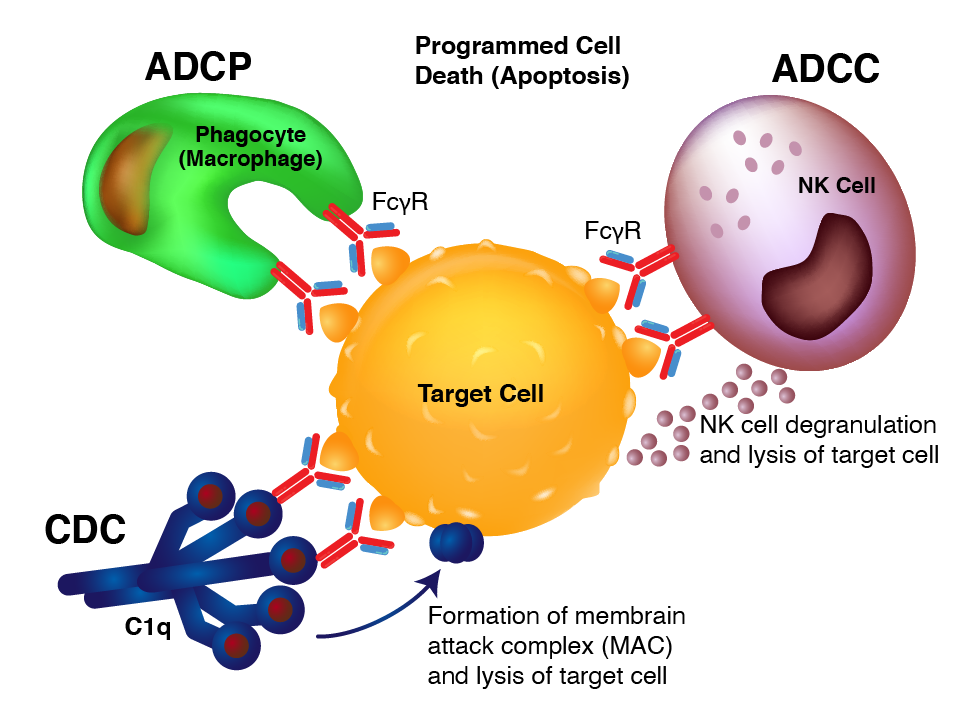
Fc Muted™ Biosimilar Antibodies
Most antibody effector functions are induced by the constant (Fc) antibody region, which can interact with complement proteins and Fc-receptors (FcRs). Fc-mediated antibody effector functions include antibody-dependent cell-mediated cytotoxicity (or antibody-dependent cellular cytotoxicity; ADCC), antibody-dependent cellular phagocytosis (ADCP), and activation of the classical complement pathway (or complement-dependent cytotoxicity; CDC)1,2.
- ADCC: FcRs on effector cells bind to the Fc region of antibodies on a target cell, resulting in secretion of lytic enzymes and the expression of cell death-inducing molecules, inducing target cell lysis.
- ADCP: FcRs on phagocytic cells bind to the Fc region of antibodies on a target cell or immune complex, promoting clearance via phagocytosis.
- CDC: C1q binds to the Fc domain of antibodies on a target cell, triggering the complement cascade and assembly of the membrane attack complex (MAC), resulting in cell lysis.
While these effector functions are essential for effective therapeutic antibodies, they may not be preferential in research experiments. All of Leinco’s biosimilar antibodies are also available in an Fc Muted™ format, in which mutations are introduced at crucial binding sites of the Fc domain with the FcR and C1q, reducing or eliminating Fc-mediated effector functions. In addition, by preventing FcR binding, Fc Muted™ biosimilar antibodies have reduced non-specific background signals, making them ideal for staining applications, such as flow cytometry and IHC.
- Nimmerjahn F, Ravetch JV. (2008) Nat Rev Immunol. 8(1):34-47
- van Erp EA, et al. (2019) Front Immunol. 10:548


